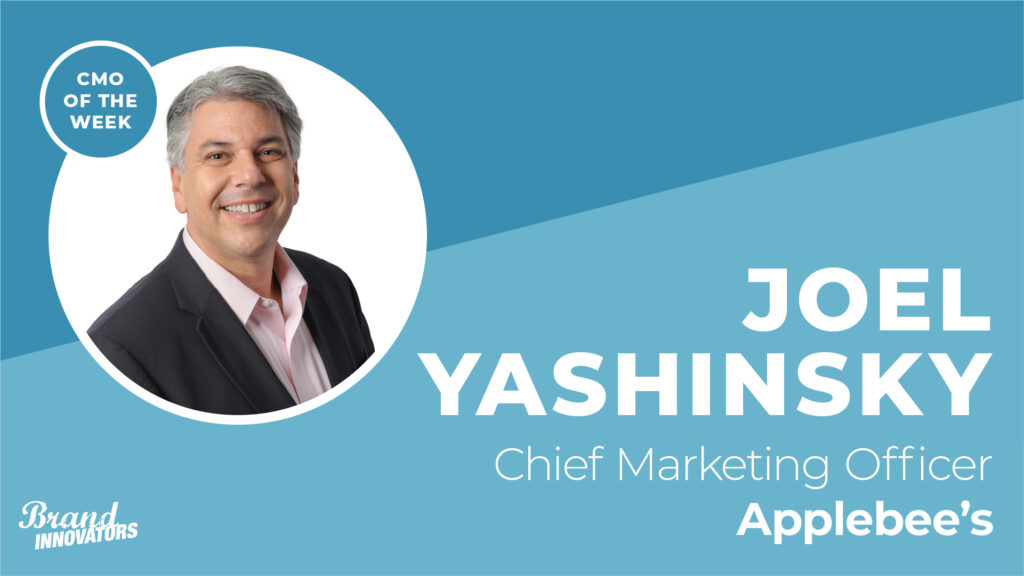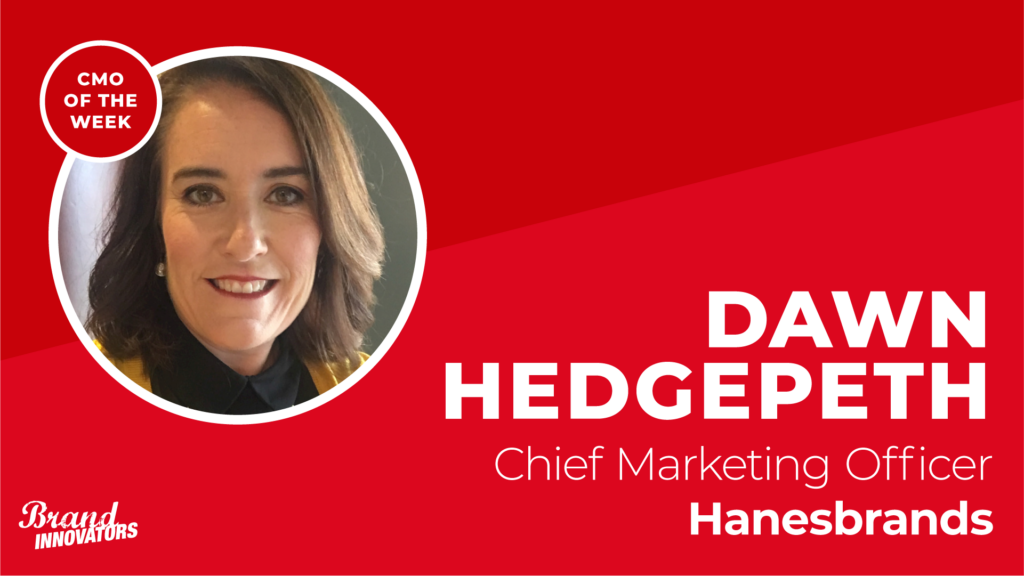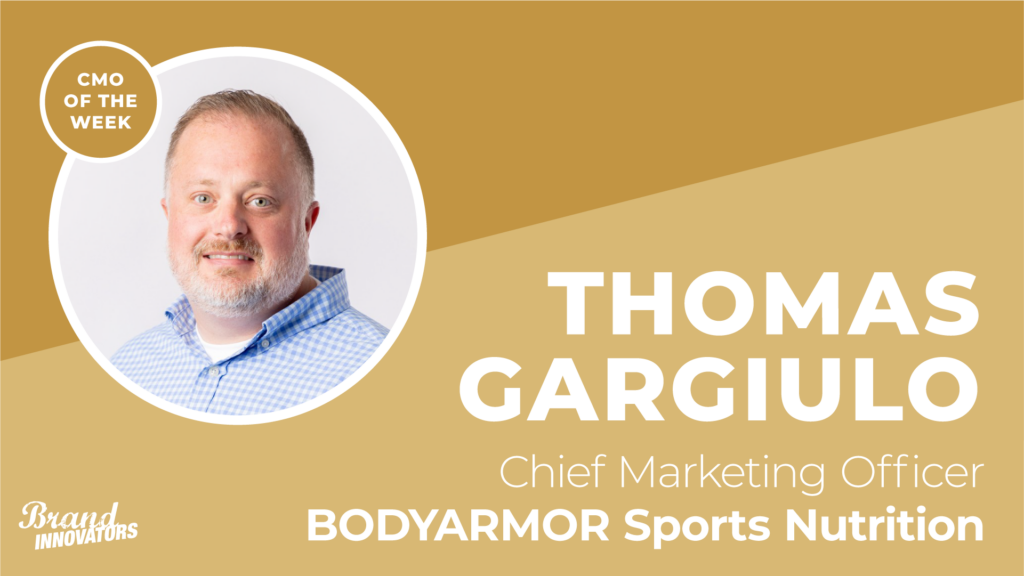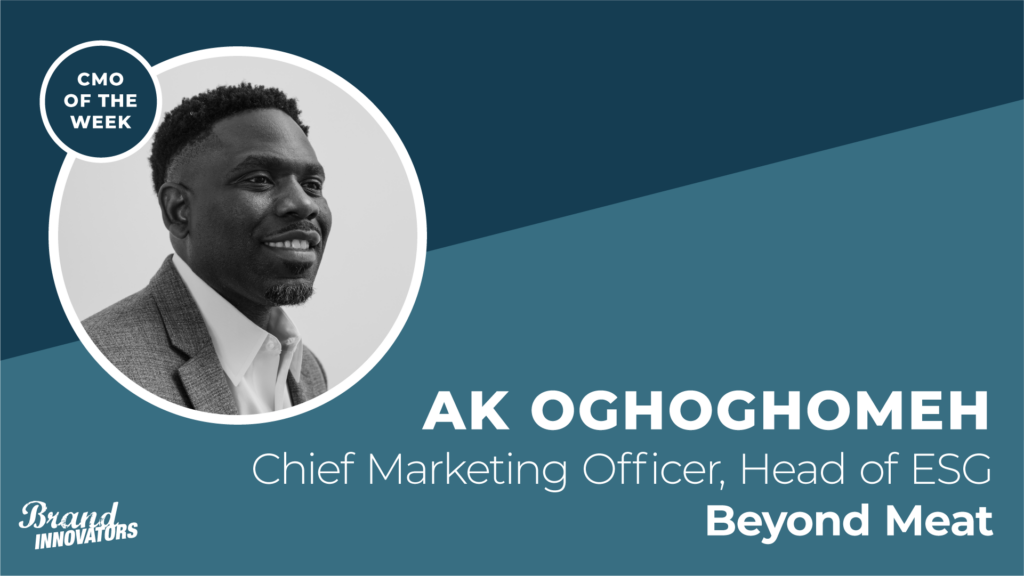When the COVID-19 pandemic first led to nationwide lockdowns in March 2020, it became clear pretty quickly to Vistaprint chief marketing officer Ricky Engelberg that his company’s core product offerings of printed designs, signs and business cards might not be readily relevant to the new market conditions.
“We’re partnered with all these small businesses, so we knew we needed to figure out products for their needs as they began to understand how to shift to takeout, or how to shift to contact-free payment,” Engelberg says. “Ultimately, the business we are in is being a partner. We happen to print a bunch of different things and offer design, but what we offer today will evolve tomorrow as needs change and evolve in the marketplace.”
While many marketers spent the first weeks of the pandemic pivoting their supply chains to produce hand sanitizers and ventilators for communities in need, Vistaprint saw an opportunity to create masks with a wide variety of designs that could help meet the overnight need for CDC-compliant facial coverings. By June, the brand was on daytime and late-night broadcast television with a campaign called “This Is Not A Mask” to show the widespread impact the simple act of wearing a mask could have on communities.
“We feel it was our obligation to represent the needs of small businesses in the community,” Engelberg says. “If you want to have success in small business, it’s when baristas don’t have to be mask police and can focus on running their coffee shop. For us to be able to say ‘Here’s some great masks from artists you love, and it’s gonna be great for your kids as well and so comfortable,’ it’s us saying it’s incredibly important for us to have a consumer and small business audience be taken care of because they all exist as one community.”
Engelberg joined Vistaprint in the fall of 2019, after having spent nearly 20 years in various roles at Nike, including 14 in Portland and three in Boston with Converse. Brand Innovators caught up with Engelberg from his home office in Boston to learn more about Vistaprint’s pivots to support small businesses, lessons learned from his career with Nike and the advantages of hiring a remote creative team. The conversation has been edited for length and clarity.
Brand Innovators: What are some ways the COVID-19 initially impacted your business last year, and what are some pivots or innovations you put in place to adapt to the new market conditions?
Ricky Engelberg: It’s obviously been a unique year, and if you had asked me to describe what I would do in my first year as CMO I don’t think I would have included quite a few of the things we ended up doing – figuring out how to transition a company to remote-first, hiring a team you interview via Zoom, briefing agencies on all the settings where you never would think it would be all over Zoom and being in new business lines like masks.
While no one ever wants to have a global pandemic, in a lot of ways it’s helped sharpen how important our evolution of the company is and a true understanding of who our customer is and the challenges they face. It’s easy to be a partner for a small business when things are going well. But how to be a partner for them when things aren’t going as well has presented some unique challenges. Though something like business cards slowed down in a pandemic, the new opportunities like masks, COVID-19 signs, wave funding for social distancing were all things that speak to understanding the needs of our customer and responding to them rather than saying, “Woe is us, let’s see where we are a year from now.”
What inspired your Artist Collection for masks, and how has that program evolved since its launch?
It’s been a journey. I think we went on sale with masks in mid-April of 2020, and it was a unique time because you couldn’t even really advertise masks. Facebook and Google weren’t allowing advertising for masks at that point because it was viewed as a thing that was either taking medical supplies or trying to sell people potentially counterfeit N95 masks. And I think what we realized early on from our colleagues in China that the ubiquity of masks was going to be inevitable as a part of reopening. And we saw an opportunity to be able to have masks that people would want to wear, have design for designers, things that you would be happy wearing and say “Oh that’s a great mask!”
And then that presented the idea for our “This Is Not A Mask” where we were one of the first brands to go on television and say, “The mask is a key to reopening your community, it’s a sign of respect and love for your community and family.” At the time it didn’t feel like we were making that much of a political statement, and a year later we’re making a completely rational statement. My kids have been back in school in-person for the last four to five months and every morning they have a draft of their favorite masks to wear.
We were able to be part of reopening communities in the safest ways possible. So it’s not about having a mask business for the next 10 years, it’s about being a partner of the communities we serve when they need us. It’s important for us to understand that we play a role to help represent the best interests of small businesses.
Speaking of masks, what inspired Vistaprint’s Save Small Business Fund with the U.S. Chamber of Commerce Fund, and how has that expanded this past year?
We wanted to give grants to underrepresented and less fortunate areas of the U.S. in a time when they were most in need. What we’ve been able to do is take that same spirit of that and apply it to many things going forward. For example, we partnered with NAACP and The Celtics to create Power Forward, funding Black-owned small businesses in the New England area with $25,000 grants and design services to help push them forward.
We’ve taken just under $2 million in funds to do 99 days of designs with our partners 99Designs with people like Complex or Refinery 29, to be able to go and identify 99 different small businesses that needed support to be able to launch or pivot coming out of the pandemic. To be an advocate, you have to be there in tough times. It’s just a core part of who we are going forward.
How has your media mix evolved this past year – are there any new channels or platforms performing more strongly for you this year vs. last?
Everything went to zero, which created a unique, interesting moment. It’s like when you’re trying to figure out why something’s not working in your house — I’m gonna flip every fuse in the box to see which one works. We’ve been able to see which ones drive impact, we’ve seen great success from channels like YouTube. Vistaprint traditionally has been a company that invested in paid search and direct-response television we’ve been able to rest that footprint to be very digital centric – be it things like Facebook, Instagram, YouTube, Snap, so forth – but also create more content-based partnerships with media platforms and 99Designs. There’s still a massive role for us with television, in targeted high-impact ways vs. a 52-week, always-on presence.
You spent 20 years at Nike before joining Vistaprint. What guiding principles did you develop at Nike that you’ve been able to apply to your current role, and what was appealing about making the leap?
Vistaprint was so incredibly interesting to me because I love small businesses from living in Portland for 17 years — it’s small business heaven. Like, everyone has a favorite food truck, “That restaurant’s owned by someone whose friend works at Wieden who did the logo,” etc. Or even before that when I was in Athens, Georgia, I owned a record label with my college roommate where we had to figure out how to make stickers, “What are crop lines?” Those problems aren’t solved problems yet. So the opportunity to help create an incredibly supportive partner for small businesses that’s passionate about design, and building world-class, industry-changing, mass customization tools with Vistaprint was awesome.
I’d been at Nike and Converse for 20 years at that point, and it was everything I could have wanted from interning at the age of 20. The same principles we took from trying to make a runner’s life better I think about every single day in how to make every small business owner’s life better. I was part of the team that helped create Nike Plus, the Fuel Band — all these things to figure out how to motivate an athlete every day, how do you not intimidate them, take them on a journey and embrace wearables, they’re very comparable to all these different ingredients with Vistaprint and how we make all these things accessible.
What long-term opportunities have come out of this past year of remote work and product pivots?
We’ve hired some unbelievable people this year who I’m excited to meet. We embraced remote-first early on, and about three months into the pandemic we realized that the opportunity to hire people anywhere in the world who want to be part of this journey is way more interesting than only hiring people whose family situation only allows them to move to Boston or Barcelona at that particular moment. Our head of product’s in L.A., our head of UX we hired from Netflix has been living in Greece the last few months, our chief of staff is in Austin, our brand director’s in Portland. It’s exciting to have the ability to serve so many customers with people who have expertise from solving these problems for so many amazing companies.
Andrew Hampp is an entertainment marketing consultant for Brand Innovators and the founder of consultancy 1803 LLC, based in Berkeley, California.




